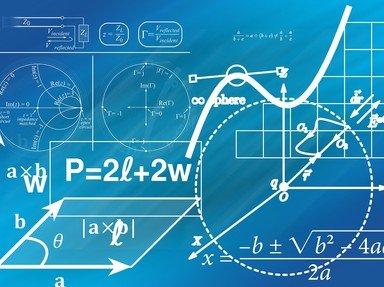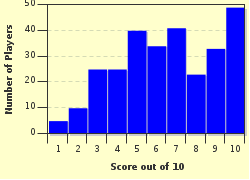Quiz Answer Key and Fun Facts
1. A perfect number is a positive integer which is the sum of its divisor, excluding the number itself. For example, the first perfect number 6 can be expressed as 1 x 6 or 2 x 3. Notice that 6 = 1 + 2 + 3. If we want to include the perfect number itself in the definition, we will say that a perfect number is ______ of the sum of all of its divisors.
2. The first perfect number is 6. Which of the following is the second perfect number? (The divisors are given in bracket)
3. Notice the following pattern:
The first perfect number has 1 digit; the second perfect number has 2 digits; the third one has 3 digits; and the fourth one has 4 digits. So, does the fifth perfect number contain 5 digits?
4. The sum of all of the reciprocals of a perfect number's factors (including the perfect number itself) equals?
5. The fundamental theorem for finding perfect numbers states that if (2^n)-1 is a (an) _____ number, then 2^(n-1) x [(2^n)-1] is a perfect number.
6. The first 4 perfect numbers can be generated by using the formula 2^(n-1) x [(2^n)-1], where n = 2, 3, 5, 7. This formula was discovered by?
7. The formula 2^(n-1) x [(2^n)-1] is used to locate the next perfect number. As of 2006, the 44th perfect number has been found, which contains 19,616,714 digits. The second part of the formula, [(2^n)-1], which is a number that is one less than a power of 2, is called a ______ number.
8. The last digit of all of the 44 perfect numbers discovered by now (as of November 2007) is either 6 or 8.
9. Complete the following quote taken from an ancient Christian scholar, Saint Augustine's book, "The City of God". "God created all things in ___ days because the number is perfect."
10. GIMPS offers free software for volunteers to download and locate the next prime and perfect number. GIMPS stands for?
Source: Author
Matthew_07
This quiz was reviewed by FunTrivia editor
crisw before going online.
Any errors found in FunTrivia content are routinely corrected through our feedback system.


